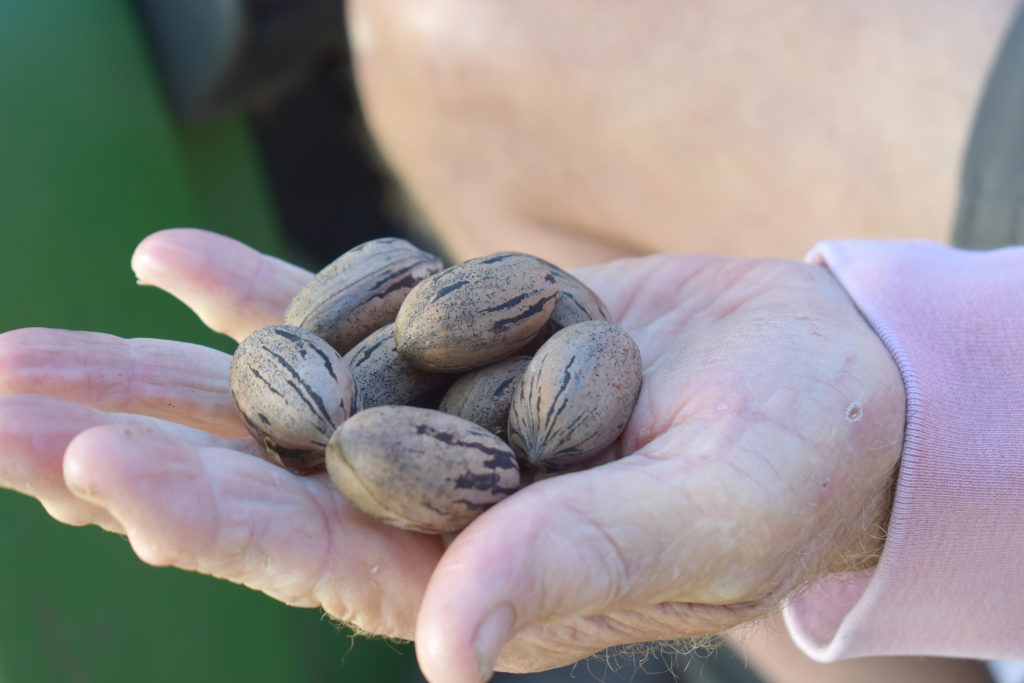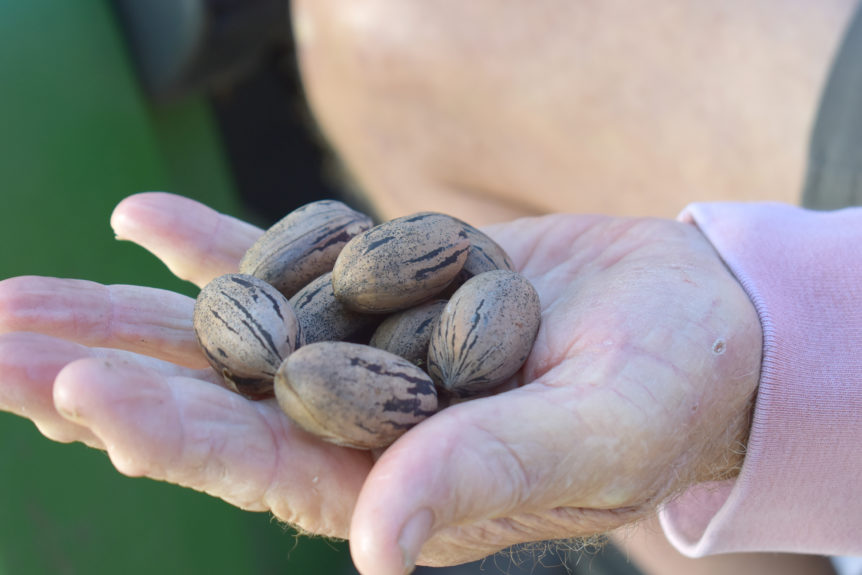
By Clint Thompson
Fungicide applications are an essential management tool for pecan growers in Georgia and Alabama. Weather conditions are conducive to scab disease development in the region that, over time, can cause resistant trees to lose some of their resistance.
Case in point: ‘Avalon’ was a variety researched by the University of Georgia (UGA) breeding program and provided excellent scab resistance. But its recent susceptibility to scab in North Georgia orchards was reported this past summer.

That places an added emphasis on growers applying fungicides no matter the resistance level of a pecan variety, says UGA pecan breeder Patrick Conner.
“Nobody should be trying to grow pecans if they’re not going to be spraying fungicides in the east,” Conner said. “With those sprays, you’re going to get better control than if you would with a susceptible cultivar like Desirable. If the breeding program is actively releasing new varieties, over time, you’ll phase out those that have become more susceptible and phase in new ones that are resistant; and keep up with the disease that way so we’re able to control with the fungicides we apply.
“What we don’t want is to be planting something like Desirable, which we were planting in the 1940s and 50s and keep planting it 80 years later when it’s become susceptible. You want to have a continual supply of new cultivars with different resistance genes to try to stay ahead of the disease.”
Scab Pressure
Scab pressure has also been significant on some ‘Avalon’ trees in the southeast part of the state. It has been effectively controlled with a moderate spray program, but scab can be devastating on unsprayed trees. Scab was especially high this year amid a very wet summer.
“We saw scab on cultivars, including Avalon; several that what we consider highly resistant cultivars which, in different locations we were seeing scab on. It’s especially bad when you have two wet years in a row because you have the disease left over from the previous year and then you have good conditions for it again the next year,” Conner said. “You tend to get high levels of the disease.”
Scab is a fungal disease that infects the leaves or nuts of pecan trees. If scab impacts the nut early enough in the production season, it can cause the nut to blacken and fall from the tree. It excels on trees that have received moisture. Some growers must make at least 10 fungicide applications during an average year to manage the disease.










